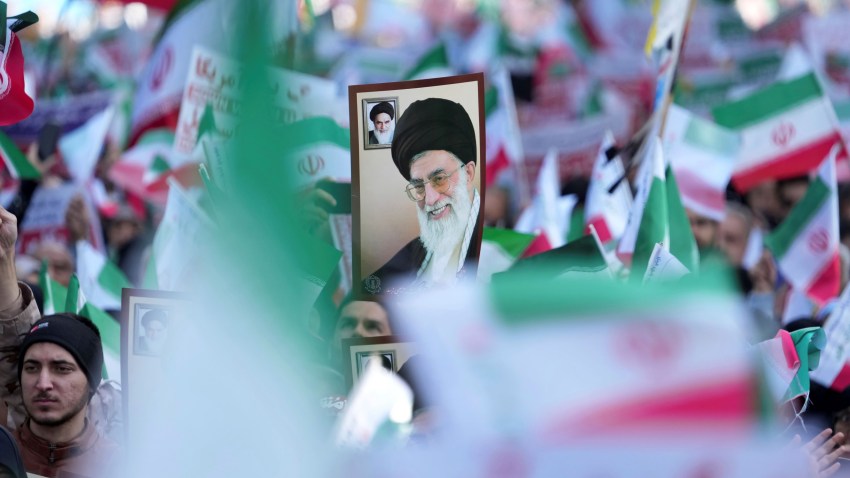Over the past decade, the struggle between Iran and Saudi Arabia for dominance in the Middle East insinuated itself into nearly every regional issue, fracturing international alliances and sustaining wars across the region, while raising fears of a direct conflict between the two powers that could involve the United States. Now both sides seem to be seeking an offramp to confrontation, having agreed last year to reestablish diplomatic relations. But the thaw in their relations took place amid a broader shift toward lowering tensions across the Middle East that the Israel-Hamas war in Gaza, and its various regional components, has now put in jeopardy.
Saudi Arabia initially ramped up its regional adventurism after Mohammed bin Salman, the powerful son of King Salman known as MBS, was appointed crown prince in 2017. From the Syrian civil war to the Saudi-led war in Yemen, that led to proxy conflicts with Iran-backed regimes and nonstate armed groups that on several occasions veered dangerously close to direct hostilities between the two rivals. A precision missile and drone strike on Saudi oil facilities in 2019 was widely blamed on Iran. And the Trump administration’s confrontational approach to Tehran brought the U.S. and Iran to the brink of war in January 2020, with direct implications for Riyadh.
After taking office in 2021, President Joe Biden reengaged diplomatically with Iran in an effort to revive the 2015 multilateral nuclear deal that the Trump administration withdrew from. Though those talks have now stalled, they coincided with broader moves across the Middle East to mend ties that had been frayed by the region’s various arenas of conflict and competition.
Biden also promised to make respect for human rights a central pillar of his foreign policy, but ultimately he did nothing to radically change Washington’s approach to the Middle East. In 2022, he even visited Saudi Arabia and met with MBS, despite having promised to make Saudi Arabia a pariah state, in an effort to rally Washington’s Gulf partners to the U.S. side in its standoff with Russia over the war in Ukraine. Most recently, he sought to get Riyadh to sign onto the Abraham Accords, recognizing Israel in exchange for U.S. security guarantees and civil nuclear assistance, but that initiative was torpedoed by the ongoing war in Gaza.
Until Hamas’ attack on Israel on Oct. 7 , the Israel-Palestine conflict had become entangled in the larger Saudi-Iran power struggle, with Saudi-allied leaders willing to remain silent on the Palestinian issue in return for Israeli support in containing Iran. That culminated in the Abraham Accords, the U.S.-brokered diplomatic normalization deals Israel signed in the final months of the Trump administration with the United Arab Emirates and Bahrain, which formalized a strategic realignment that had until then been an open secret in the region. But the war in Gaza serves as a reminder that the conflict between Israel and Palestine cannot be simply wished away by regional powers and the United States. And the risk now of a broader conflagration involving Hezbollah, the Houthis and Iran underscores the degree to which, if left unresolved, the Israeli-Palestinian conflict will remain a threat to regional stability.
Meanwhile, the region’s previous conflicts have died down without necessarily reaching any sustainable resolutions. Yemen’s civil war has settled into a limbo of neither peace nor war, but with little amelioration of its humanitarian crises. Syria’s 13-year civil war has now entered an extended endgame that, though less bloody, remains every bit as volatile. Libya has seen a respite in its civil war since a cease-fire was implemented in October 2020 and a transitional government named in March 2021, but its political transition to elections has now hit an increasingly tense impasse. Above all, the absence of fighting in these countries by no means guarantees the establishment of lasting peace.
WPR has covered the Middle East in detail and continues to examine key questions about what will happen next. What will the U.S. presidential election mean for U.S. policy in the Middle East? Will the regional move toward diplomatic engagement become a casualty of the war in Gaza? And will resolving the Israel-Palestine conflict become a higher priority in Washington and regional capitals after the war in Gaza is over? Below are some of the highlights of WPR’s coverage.
Editor’s note: This article was originally published in May 2019 and is regularly updated.

